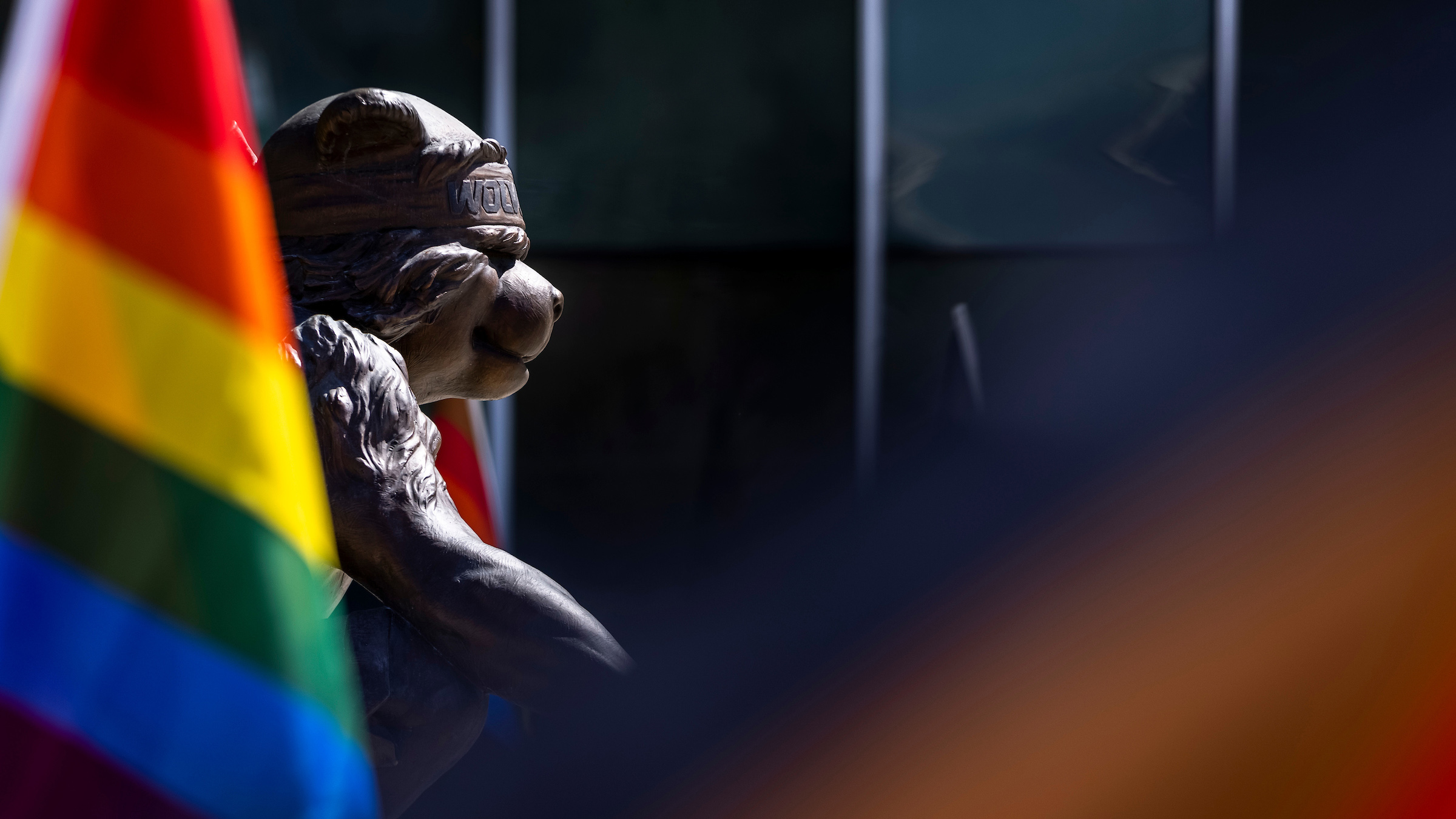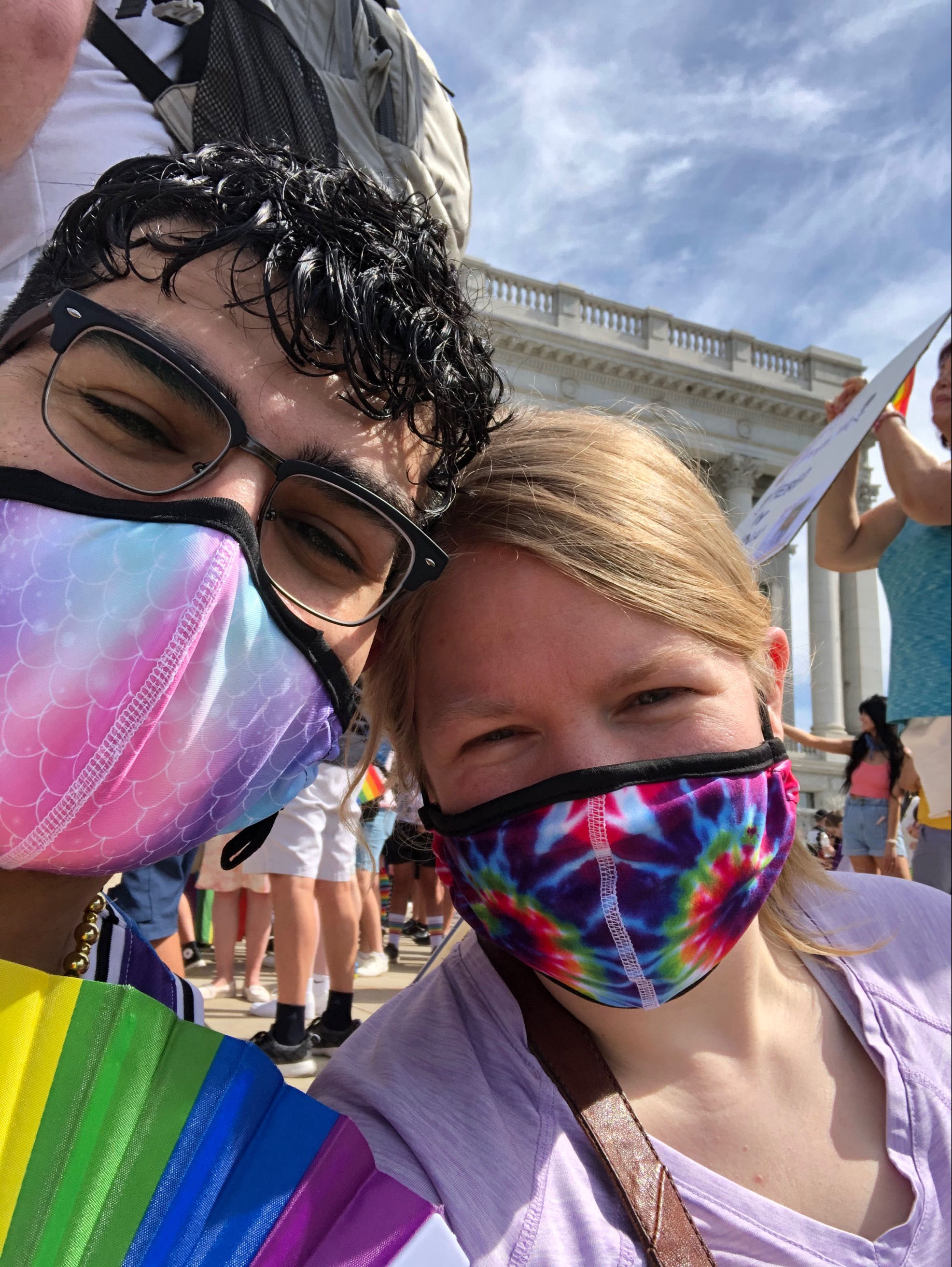Being LGBTQ+ can be an isolating, lonely experience. Dr. Sheilagh Fox (she/they), a licensed psychologist and the new LGBTQ+ mental health specialist in UVU’s Student Health Services office, says that’s one of the big reasons she’s here.

National statistics indicate that between 17-21% of college students in the United States identify as LGBTQ+. At Utah Valley University, that would mean somewhere around 7,000 students are part of that demographic. But despite those numbers, being LGBTQ+ can be an isolating, lonely experience.
Dr. Sheilagh Fox (she/they), a licensed psychologist and the new LGBTQ+ mental health specialist in UVU’s Student Health Services office, says that’s one of the big reasons she’s here.
“In Utah County, finding community is not easy,” she says. “People sometimes end up feeling like they're the only queer person that they know, even though that's probably not true, statistically speaking. Given that context, I definitely want folks who feel like they are alone to come to therapy and talk.”
Dr. Fox holds a PhD in clinical psychology and they identify as queer. While they are not the only LGBTQ+ member of UVU’s Student Health Services team, they have been hired specifically to focus on serving students from that community. They provide both individual and group therapy sessions, including LGBTQ+ group therapy with UVU therapist Dr. Ben Bailey, as well as a group focused on faith transitions with UVU therapist Dr. Nick Top.
Dr. Fox’s position is new to UVU, but they say they’re grateful it exists now, especially because personal and historical experiences may have taught LGBTQ+ students to be wary of therapists and health care professionals in general.
“One thing I want to do is use my position to identify ways that we can work to become a safer place for queer and other marginalized folks,” Dr. Fox says. “A lot of queer folks don't feel safe going to their doctor, going to a therapist, going anywhere. And there's a whole history of marginalization and medicalization and theorizing that led to stigmatization of LGBTQ+ people in broader society. I think it's important for that to be owned so that we can move forward in creating an inclusive space.”
Most often, Dr. Fox says, the issues her clients are struggling with are related to or impact their relationships with other people. She says the most important protective factor against depression is having close interpersonal relationships. For LGBTQ+ people, however, those relationships can become more fraught because they don’t feel safe to be themselves.
“I feel like therapists do have a pretty robust set of skills and knowledge and experience to help people figure out, ‘Okay, what's going wrong in your ability to connect with other people?’” Dr. Fox says. “Or what marginalization are you experiencing that is disconnecting you from people in your lives, and how can we find you relationships where that is not happening?”
In addition to her clinical work, Dr. Fox says she feels a key part of her role is to be an activist and advocate, because LGBTQ+ people face systemic issues that can’t be resolved in individual or group therapy sessions.
“I believe therapy has the potential to be used by institutions, universities included, as a rug under which to sweep distress resulting from homophobic or transphobic cultures and policies,” Dr. Fox says. “They could get comfortable and say, ‘Oh, the therapists will deal with it, and we don’t need to change.’ So it feels important to me to be engaged in activism that helps to improve the situation, so people eventually aren't coming to therapy because of horrible things that are happening to them in these systems.”
And while it can be difficult for people who aren’t LGBTQ+ to understand marginalized experiences, Dr. Fox says the key to connection is humility: listening, believing, and accepting responsibility when necessary.

Dr. Sheilagh Fox (she/they), right, stands with close friend and colleague Dr. Michael Azarani (they/them) at a Pride event in Salt Lake City, Utah on June 6, 2021.
“Accountability is really scary to a lot of people who hold dominant identities,” they say. “There’s so much fear of what it means to look at privilege, to look at the harm we may have caused others. It does bring up discomfort. What people don't realize is that accountability in the context of social justice is not punishment — it’s an invitation to repair relationship. It’s hard to confront the impact we have had on someone else and to change, but what lies on the other end of accountability is community, it’s friendship, it's love. And people are so afraid because they don’t know that.”
For straight allies who are seeking to learn more about what LGBTQ+ people experience, Dr. Fox is quick to point out that there’s no one universal summary — there’s a vast amount of diversity across dimensions of sexual orientation, romantic orientation, gender, and other ways of being in the world. But what people will find, she says, is that LGBTQ+ experiences are human experiences.
“There's so much to relate to and connect to,” she says. “Just be curious. Get to know queer people. Go to a queer bookstore and pick something off the shelf. Don’t be afraid to engage with people who are different from you.”